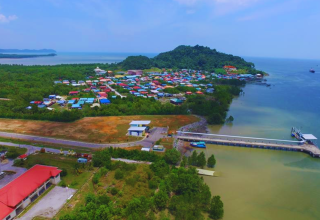
Malaysia’s government has proposed changes to the Federal Constitution that could significantly alter the lives of ‘Red IC’ holders and orphaned children. These changes aim to address long-standing issues surrounding statelessness and citizenship rights.
The Plight of ‘Red IC’ Holders
‘Red IC’ holders, often from indigenous communities such as Orang Asli and Orang Asal, have lived with permanent resident status for decades, despite being born and raised in Malaysia¹. The new rule seeks to amend the citizenship laws, potentially impacting their children’s rights to Malaysian citizenship.
Orphaned children, or foundlings, currently benefit from provisions that grant them Malaysian citizenship if found within the country. However, the proposed amendments could remove these protections, leaving their status uncertain.
Keep Reading
In a positive turn, the government has announced that senior citizens over 60 holding ‘Red ICs’ will be granted full citizenship. This move is expected to provide relief to thousands who have waited years for recognition.
The new rule outlines specific criteria for citizenship eligibility. Applicants must be born in Malaysia, have at least one Malaysian parent, and pass a Bahasa Malaysia competency test. Additionally, they must have resided in Malaysia for a significant period.
The Debate Over Constitutional Amendments
The proposed changes have sparked debate among lawmakers and civil society groups. Advocates argue for the preservation of current protections to prevent statelessness, while others push for stricter controls on citizenship rights¹.
As Malaysia grapples with these proposed changes, the fate of ‘Red IC’ holders and orphaned children hangs in the balance. The decisions made today will shape the nation’s social fabric for generations to come.





























